Testosterone blood tests in the UK assess hormone levels through accurate clinic-based assessments, surpassing online kits' convenience due to daily fluctuations and potential user errors. Professional guidance is vital for interpreting results, especially for athletes. Strict HPRA guidelines ensure safety, with precise protocols enhancing accuracy. Home testing offers initial insights but requires specialist advice for actionable results.
In today’s digital age, accessing healthcare services has evolved with online testosterone blood tests gaining popularity. However, accuracy concerns arise when comparing these at-home kits to clinic testing. This article delves into the intricacies of testosterone blood tests in the UK, exploring convenience gaps, accuracy comparisons, and expert insights on interpreting data following industry best practices. Understand the reliability challenges of at-home kits versus the clinical setting’s standard protocols for an informed decision.
- Understanding Testosterone Blood Tests
- Online vs Clinic: Convenience Gap
- Accuracy Comparison: Lab Results
- At-Home Kits: Reliability Challenges
- Clinical Setting: Standard Protocols
- Expert Analysis: Interpreting Data
- UK Guidelines: Best Practices
Understanding Testosterone Blood Tests

Understanding Testosterone Blood Tests in the UK
In the UK, testosterone blood tests are a common method to assess male hormone levels. These tests measure the amount of total testosterone present in your bloodstream. Total testosterone includes both free and bound forms, providing a comprehensive view of your hormone status. The test is typically carried out with a simple blood sample taken from a vein in your arm, making it relatively non-invasive. Accurate results depend on various factors, including the time of day the test is conducted, as testosterone levels naturally fluctuate throughout the day.
Knowing how to interpret testosterone test results is essential for understanding your hormone health. A home testing kit for testosterone can offer a convenient way to check your levels privately. However, these kits may not always provide precise results, and consulting with a healthcare professional is advised for personalized insights. A typical reference range for total testosterone in adult men is approximately 10-30 nanomoles per litre (nmol/L), but this can vary based on age and individual health factors, as outlined in the testo levels chart by age.
Online vs Clinic: Convenience Gap
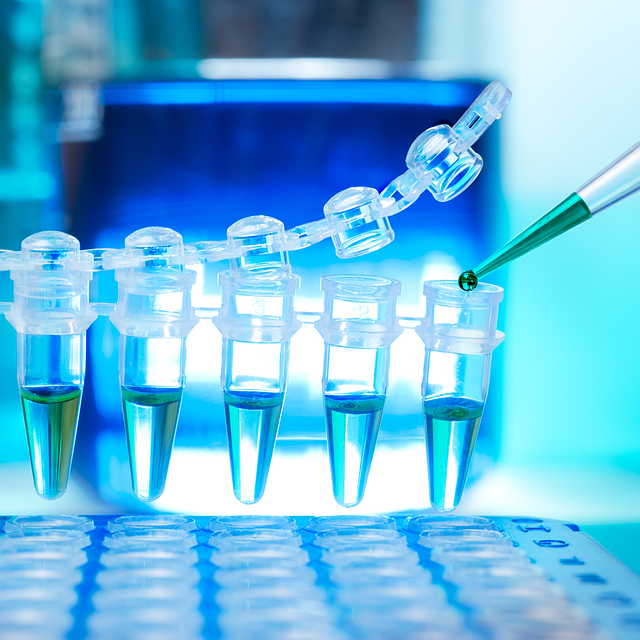
Online testosterone tests have gained popularity due to their convenience and accessibility, especially in the UK where many people prefer the comfort of taking a test at home. These kits often provide quick results, allowing individuals to monitor their testo levels chart by age without visiting a clinic. However, when it comes to accuracy, traditional clinic-based testosterone blood tests hold an edge.
In clinics, healthcare professionals can offer more comprehensive assessments, including not just the testosterone test at home but also considering other relevant factors like thyroid blood test results. The in-person setting ensures precise measurements and provides opportunities for experts to explain the findings, offer tailored advice, and address any concerns. This direct approach bridges the convenience gap often associated with online testing, prioritizing accuracy and personalized healthcare.
Accuracy Comparison: Lab Results
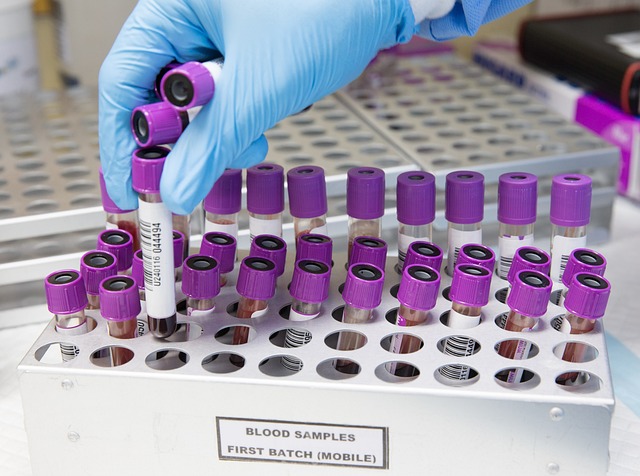
When comparing the accuracy of online testosterone tests versus clinic-based ones, lab results play a pivotal role. Studies show that traditional testosterone blood tests, conducted in certified labs and supervised by medical professionals, offer significantly higher precision. These tests measure the level of total testosterone in your blood, providing a comprehensive picture of your hormone health.
In contrast, online kits may give you a quick indication but often lack the depth and reliability. Factors like user error during sample collection or variations in testing methods can impact results. Moreover, some at-home tests might not detect subtle changes in testosterone levels, which is crucial information, especially when considering symptoms of too much testosterone in men (e.g., aggression or acne) or understanding what does a low testosterone score mean for overall health and well-being. Therefore, for accurate and actionable insights, many healthcare professionals recommend seeking professional guidance and where to get a testosterone blood test privately through reputable clinics.
At-Home Kits: Reliability Challenges
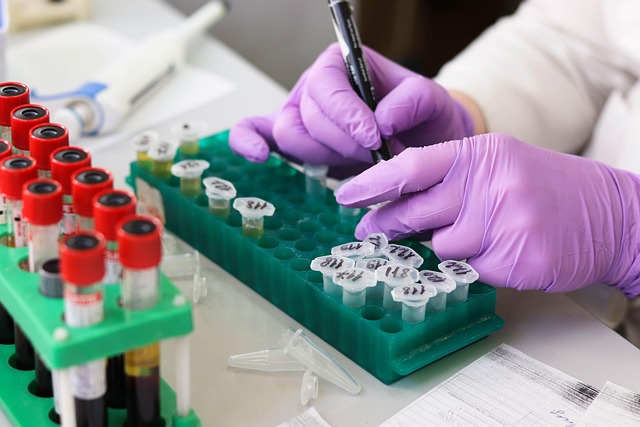
At-home testosterone kits offer a convenient way to test your hormone levels, but their reliability can be challenged. These DIY tests, available widely in the UK, typically require a simple finger prick and provide results within minutes. However, several factors can impact their accuracy. The quality and precision of these kits may vary, and external variables like improper sample collection or storage can skew the results.
Furthermore, at-home testing doesn’t account for potential fluctuations in hormone levels throughout the day. Unlike a clinic, where professionals can interpret results in context, home kits provide a snapshot without considering individual health histories or other relevant factors. This lack of customization means that while at-home testosterone blood tests UK might offer initial insights, they should be interpreted with caution and confirmed by a medical professional for accurate assessments and guidance on potential testosterone therapy risks and benefits.
Clinical Setting: Standard Protocols
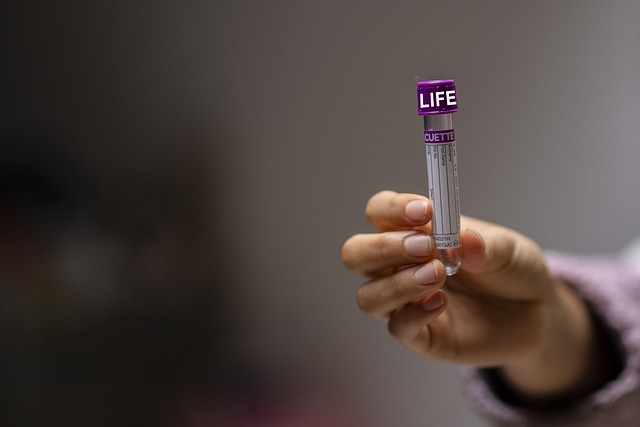
In a clinical setting, the process of administering a testosterone blood test is governed by strict protocols designed to ensure accuracy and patient privacy, in line with the Data Protection Act. The UK healthcare system maintains high standards for such tests, where trained medical professionals collect samples under controlled conditions to minimise any potential sources of error. This typically involves taking a blood sample through a simple needle insertion into a vein, often in a private room to preserve the comfort and confidentiality of the patient.
The standard protocol includes providing clear instructions to patients before the test, explaining what to expect during and after, and addressing any concerns they may have. After collection, the sample is promptly processed following established laboratory procedures to guarantee precise results. This meticulous attention to detail ensures that when comparing online testosterone blood tests in the UK against clinic-based ones, the latter’s rigorous adherence to standard protocols can offer a higher degree of confidence in the accuracy and reliability of the results, especially for individuals seeking to understand their testosterone levels, such as a 30-year-old man, who may have specific concerns or health goals. As for pain, while it may cause minor discomfort, the procedure is generally quick and should not be overly painful.
Expert Analysis: Interpreting Data
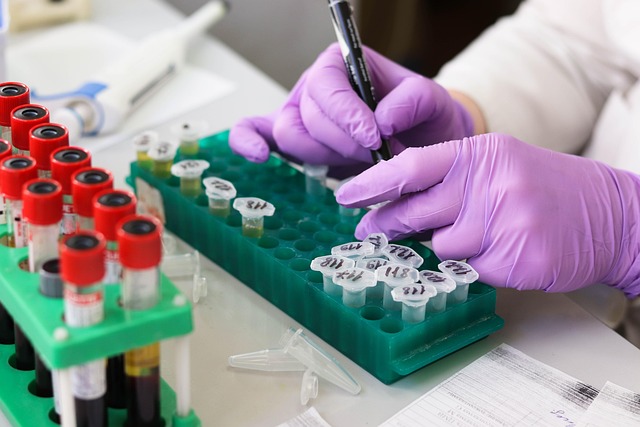
When comparing online testosterone tests to clinic-based ones, understanding the nuances in data interpretation is key. Expert analysis plays a pivotal role in accurately diagnosing and addressing testosterone levels, whether for general health assessments or specific populations like athletes. In the UK, where testosterone blood test accessibility and reliability are paramount, professionals emphasize the importance of proper sampling, handling, and laboratory analysis to ensure precise results.
For athletes considering testosterone testing, especially for performance-enhancing purposes, it’s crucial to understand that ‘normal’ ranges vary based on age, biological sex, and individual factors. While insurance coverage for these tests depends on regional policies and specific circumstances, many athletes opt for home testing kits as a convenient initial screening tool. However, is testosterone testing necessary for athletes? The answer lies in personal goals, training regimens, and the advice of sports medicine specialists who can interpret results within the athlete’s unique context.
UK Guidelines: Best Practices
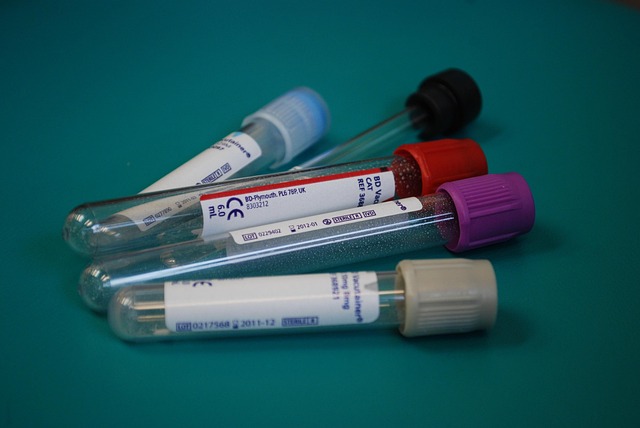
In the UK, guidelines for best practices regarding testosterone blood tests are stringent to ensure accuracy and patient safety. These regulations are designed to maintain high standards in both clinical settings and home testing kits. The Healthcare Products Regulatory Agency (HPRA) oversees the quality control of medical devices, including at-home testosterone blood test kits, to guarantee their reliability.
According to UK guidelines, patients should always consult with a healthcare professional before undergoing a testosterone blood test. This ensures that the test is appropriate and necessary based on individual health needs. Moreover, proper sampling techniques and secure storage methods are essential practices to maintain data integrity and patient privacy, as outlined in the Data Protection Act. Can doctors prescribe testosterone tests? Absolutely, but they must follow these best practices to ensure the accuracy of results and uphold ethical standards.
When comparing online testosterone test accuracy to clinic methods, it’s clear that traditional clinical settings offer superior precision due to standardized protocols and expert analysis. While at-home kits may provide convenience, they often fall short in reliability. For accurate and actionable results, especially in the UK context, undergoing a testosterone blood test in a clinical setting is recommended. Following established guidelines ensures robust data interpretation, guiding individuals towards informed health decisions regarding testosterone levels.
